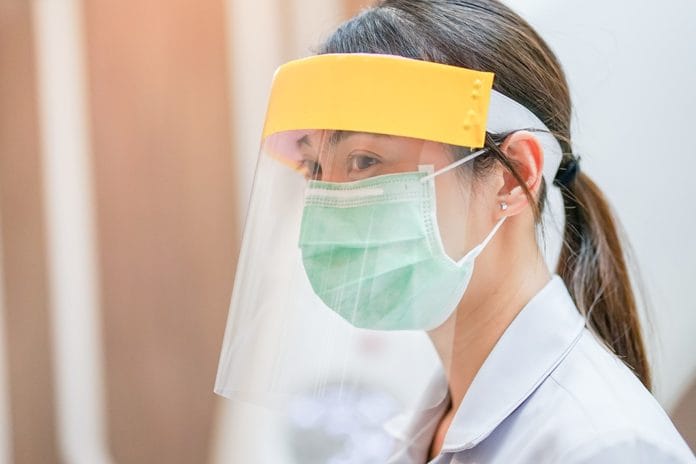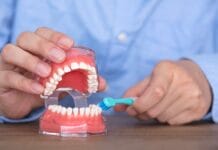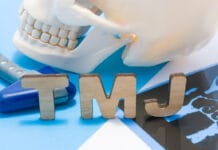Editor’s Note: Information about COVID-19 is changing on a daily, sometimes hourly, basis. We have made every attempt to ensure this article is up-to-date at the time of publication, but with the rapid changes occurring, some information may have changed since publication. Please visit https://www.coronavirus.
This article’s intent is how to build trust with patients once they return to the office for elective care. Why it doesn’t address new infection control PPE requirements: Right now, the CDC only has interim updates in infection control practices for seeing emergency patients. They have not come out with new infection control guidelines for when things are back to normal and elective procedures (hygiene) can begin. To cover “the new normal” would just be speculation and not based on any real requirements that are in place or evidence based.
Considering that we have had our coronavirus time off work, it will be essential to get the dental offices up and running with quality, efficiency, and many happy returning customers. Gaining the public’s confidence as well as our confidence in everyone’s safety is of utmost importance.
AIDS shook the dental and medical field in the 1980s, and we adhered to standards for PPE to protect both us and our patients. This set us up to face the viruses we incurred in the coming years since the 1980s. Until now, our confidence in our PPE has not been shaken or questioned. With the fluidly ever-mutating COVID-19 virus, we were forced to question the safety of our PPE and advised to shut the dental doors for the safety of everyone, helping to snuff out the spread of the virus.
I personally felt confident that the media was overreacting − until more facts revealed themselves. A few days ago (as of writing this), we were the only office open in the area. It was then that I questioned the safety of practicing. Patients, surprisingly, did not cancel their appointments. As the news informed us of the seriousness of this elusive virus, I realized the insanity of keeping our doors open. Thankfully, the governor closed all dental offices. It’s a double-edged sword, but I am still thankful.
How Appointments Could Change
As the onslaught of this virus passes, we need to rethink our daily actions and should consider the “alpha and omega” of the dental appointment:
- Alpha: The beginning of the appointment.
- Omega: The ending of the appointment.
What we can do to ensure our patients that we have them in our best interest is highlighted in these areas.
Most patients will remember the “in the meantime,” but forget the important details of the beginning (alpha) and the end (omega) of a dental appointment. Let’s highlight the alpha and the omega with an apostrophe!
How we do this is very simple and effective. First, since handshaking is currently off the table, greet your patient with a warm smile and perhaps give them a sincere head nod to greet them, and acknowledge their importance in your practice.
Reviewing and updating a patient’s health history should not be a five-second event. Explain to your patient the importance of noting any health changes, hospitalizations, doctor’s visits, and medication updates, and how the association between dental health and overall health is intimately related.
By explaining why they need their health history thoroughly reviewed and updated relays the importance of it before they object. According to Dr. Paul Etchison (Dental Practice Heroes Podcast, POI That Feels Good), we should handle the objection before it becomes an objection. I like the effectiveness of that thought process.
Transparency Gains Trust
The alpha involves explaining what is going to happen before it happens and how others may have felt during and after the procedure. Gain trust by being fully transparent about all aspects of their dental appointment.
Perhaps now (since COVID-19), the alpha should include having the patient hand sanitize as you are washing your hands. Explain the importance of continued hand cleansing to keep everyone safe. Then a good pre-rinse prior to treatment will assure the patient that we are serious about their health.
Prior to periodontal treatments, it is important to explain any possible sensitivities that may possibly arise. By emphasizing the extreme possibilities, the patient will either:
- Be thankful that they did not have such extreme sensitivities.
- Remember that you said they may have such extreme sensitivities and see this as normal for the procedure.
Giving acetaminophen at the appointment also alerts them to the seriousness of the procedure. If you are giving injections, inform the patient beforehand that they may feel bruising or slight pain at the injection site for a day or two. This prevents the front desk from receiving any unnecessary phone calls and unnecessary dental visits. The “alpha” sets them up for expectations.
Omega and Goodbye
The “omega” helps us to properly wrap up the appointment in a way that helps the patients remember the fine details that were discussed during the procedure. Start by recapping what you did and telling them that everything went better than expected! This is reassuring. This is where you restate what they may experience at home, such as exaggerated hypersensitivity, and slight pain or bruising along the gumline.
Make sure they are advised that some patients have these hypersensitivities for up to a week or longer. By lengthening the timeline of expected sensitivities, patients know what to expect as normal. If they do not experience such heightened sensitivity, then you are gold to them!
In the same perspective, if the doctor diagnoses carious lesions that need restorative work, it is a good time to review with the patient how “deep” the lesion is before they leave the hygiene operatory. Plant the seed of information before the doctor treats the lesion. A quick preview of what to expect at the crown or filling appointment and after, as normal and what is not normal, sets up for a better restorative appointment. When the doctor or assistant repeats what you have already stated, patients have more confidence and less concerns.
If periodontal treatment was done that day, hand the patient a summarization in the form of a post-op instruction sheet. Include the office’s telephone number and let them know you are available for them following treatment if they have any questions.
Note that most of these follow-up questions should have already been answered in the “alpha” and the “omega” of the appointment, thus lessening after-treatment telephone calls to the front desk.
Wrap it up quickly with a Q-and-A session. “Do you have any further questions?” Answer these questions with full transparency.
The most important part of the “omega” is to thank your patient. “Thank you so much for visiting us today. We appreciate you.” Wow, who doesn’t want to hear that from their dental office? Remember to use feel-good words when wrapping up the appointment to prompt re-affirmation and many happy returns.
Once again, follow up with a joint hand-cleansing before dismissal.












